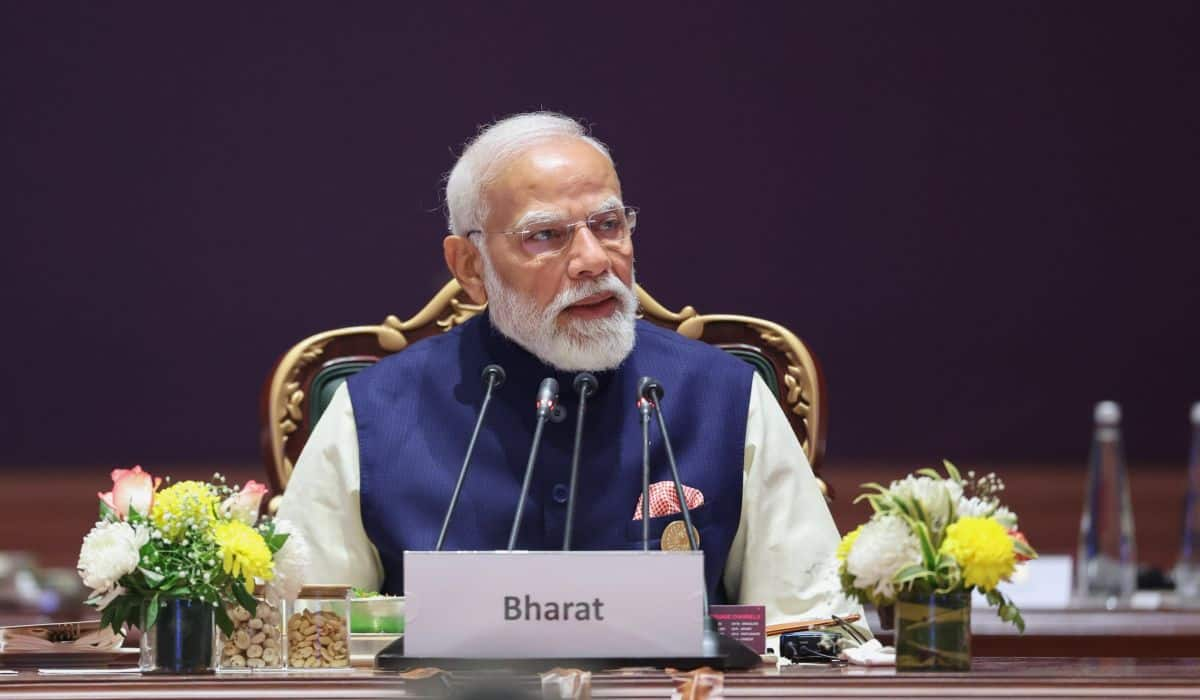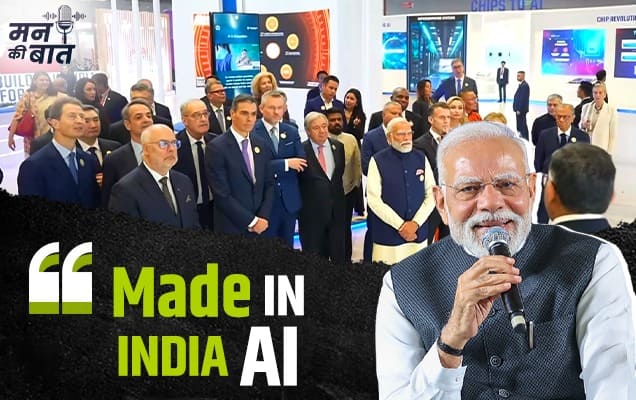Dear Friends,
Today we bow to Pandit Deendayal Upadhyaya ji, on his birth anniversary. This year the occasion is even more special as it marks the beginning of Deendayal ji’s centenary year.
Pandit Deendayal Upadhyaya is our inspiration. From his life we learn how an individual completely devoted himself to the wellbeing of the nation and the service of the poor. As a political organiser, his work was legendary. Without getting trapped into the lure for power he continued to work, selflessly.
Deendayal ji gave us the Mantra of ‘Integral Humanism’, which has been our guiding principle. This Mantra of ‘Integral Humanism’ stands out as a clear way of thought firmly rooted in the Indian tradition. ‘Integral Humanism also stands out for its emphasis on decentralization and attaches immense importance to the economic progress of every human being.

When I say that the Government of India is a government for the poor, it is deeply inspired by Deendayal ji’s idea of Antyodaya or serving the very last person in the society. India’s progress is dependent on how quickly we can free our nation from the clutches of poverty and provide every Indian a life of dignity, opportunity and aspiration.
For years, the poor of India figured prominently in rhetoric of politicians but when it came to delivery on the ground, there was a wide gap. Our government has been laser focused on bridging this gap. All our key initiatives, from Swachh Bharat, to ensuring that the poor have bank accounts, to creating a social security and pension framework to 24/7 electricity and housing for all are aimed at bringing a qualitative difference in the lives of the poor. The scope and scale of these initiatives is wide and unprecedented but we are confident that we will complete them and deliver the desired results.
Exactly on this day last year, the ‘Make in India’ initiative was launched. We believe that India is the ideal destination for companies from across the world to invest in. Our demographic dividend is ideally suited to drive this change and make India a hub for manufacturing, cutting edge research and innovation. With industry will come greater employment and learning opportunities for our youth, which will ignite the lamp of progress and prosperity in their lives.
A year on, I am meeting with top business leaders and investors in the United States, building on the ground we had covered last year. Wherever I am travelling, I have seen renewed enthusiasm towards investing in India. We, on our part are doing everything possible to further this spirit. We have made doing business easier, are working to make our tax structures more predictable, stable and competitive. We are simplifying procedures and removing regulations that are unnecessary. We are placing enormous focus on technology as well.
I am confident these efforts will directly benefit the poor of India and provide them the windows of opportunity they deserve.
Today, I will be addressing a UN Summit on adoption of post-2015 Development Agenda. The world is taking note of the menace of climate change and it must be highlighted that the greatest sufferers of the adverse consequences of climate change will be the poor. It is in a way a manifestation of Antyodaya that today the global community, from leaders to individuals and organisations are coming together to find ways to mitigate this adversity. I am hopeful we will draw up a clear roadmap on Climate Change Mitigation and towards Sustainable Development that will directly benefit the poor and the marginalised.
Pandit Deendayal Upadhyaya always said, ‘Charaiveti, Charaiveti.’ This was an inspiring call to keep pursuing your mission without being overcome by any obstacles, to establish a system of sacrifice and hardwork. Let us follow the path shown by Pandit Deendayal Upadhyaya and work together to fulfil his dream of a developed and just India, where the poorest of the poor is taken care of.
Yours,

Narendra Modi













